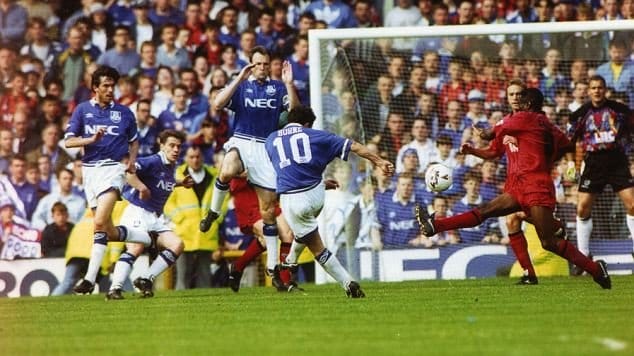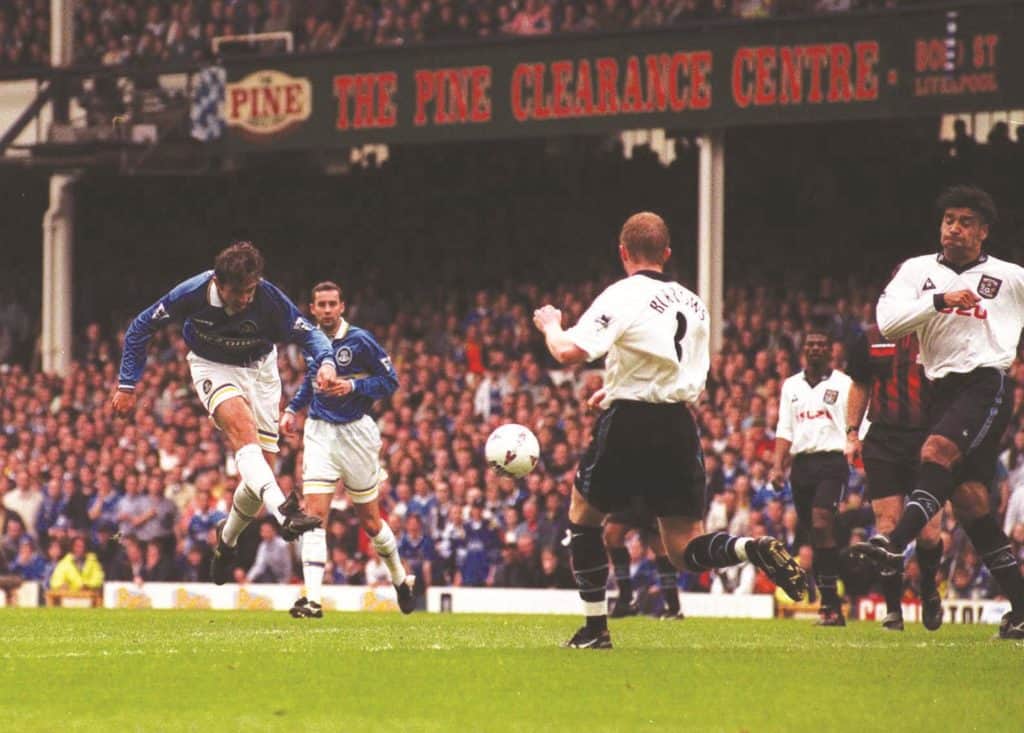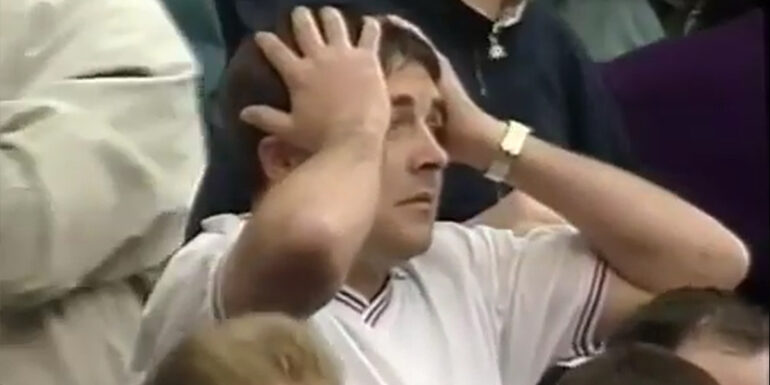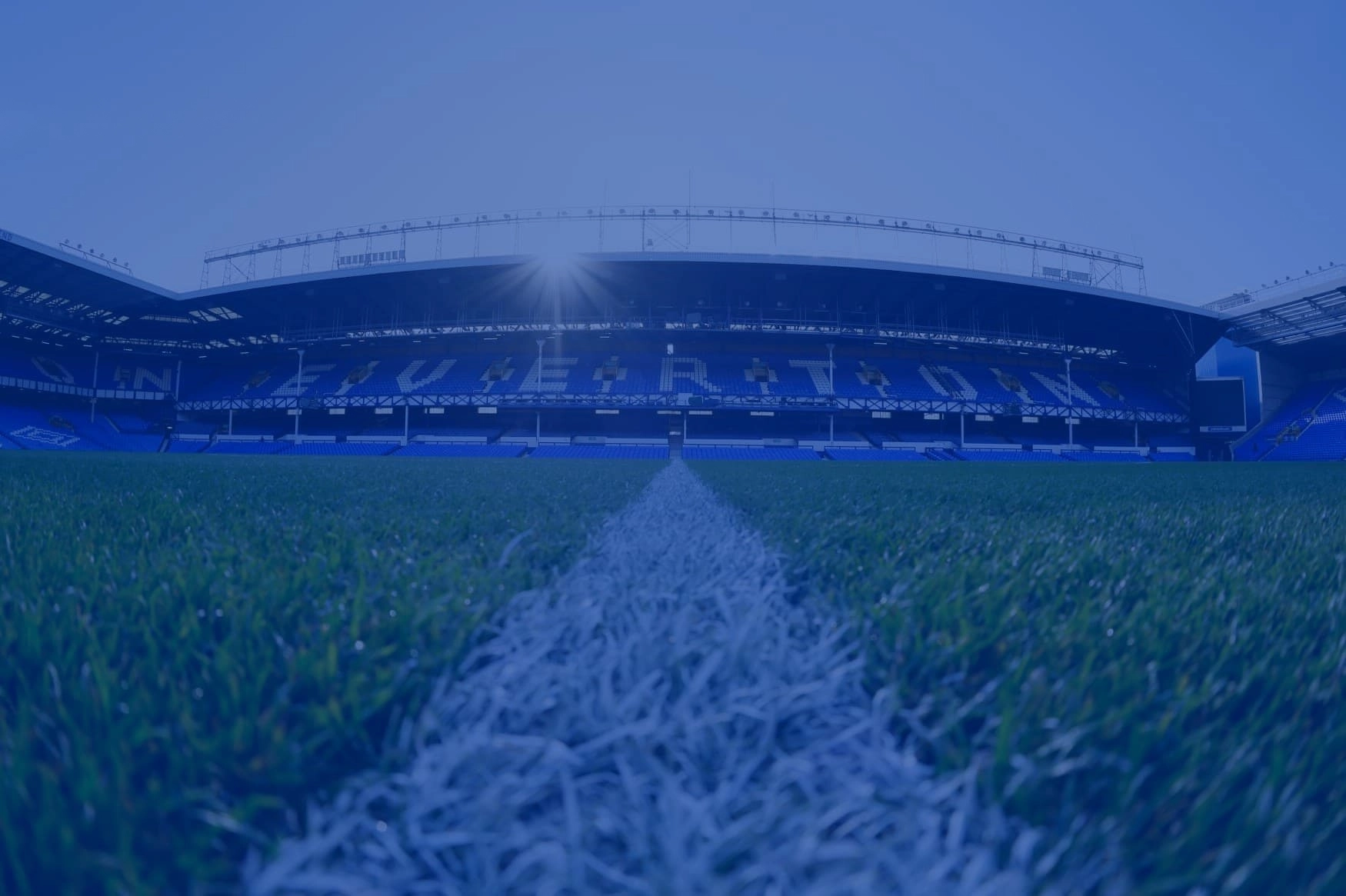In the wake of yet another anaemic performance, there has been plenty of talk amongst Blues of late about the need for ‘fight’ and ‘character’ to get us out of this mess. We want to see Andres Gomes unlock his inner Barry Horne, Allan morph into the Brazilian John Ebbrell and Mason Holgate realise that there is more to defending than spitting out your chewy and pointing at other people after you’ve cocked up. Again.
When these calls for ‘fight’ are made, inevitably, comparisons are drawn to past scrapes with the drop, specifically the club’s regular flirtations with relegation in the 1990s. The ‘Great Escapes’ of 94 and 98 get mentioned a lot as they tend to bring to mind a ‘backs to the wall’, ‘do or die’ mentality, whereby Everton teams imbued with ‘fight’ and ‘character’, did whatever it took to ensure that survival was ensured.
Except, did they?
Anyone who followed the club back in those days will painfully remember that those Everton teams were in that position exactly because they lacked ‘fight’ and ‘character’. They were spineless and absolutely, unremittingly shite. Think back to the death spiral that marked the closing months of the 1993/94 season or the campaign of dire football in 97/98 and it’s clear that even though they somehow managed to avoid the drop, had they gone down both sides would, on balance, have deserved it.
That sense of rolling over when the going gets tough was there back then every bit as much as it is today. And while people can, fairly, point to the gulf in ‘talent’ that exists between the current squad and those of 94 and particularly 98, it means nothing if you lack anything resembling a backbone and fall to pieces under the slightest bit of pressure.
I recall in those days, in response to the side’s ‘weakness’, that the same calls for ‘character’, for ‘fight’ and the desire for ‘leaders to emerge’ were common amongst the fans. But no matter how much we called for change; change did not come. And let’s remember that these squads featured players like Dave Watson, Neville Southall, Duncan Ferguson and Don Hutchinson, hardly shrinking violets.
It’s worth noting that back in 94, when Leeds battered Everton 3-0 in the penultimate game of the season, a fixture that Blues of a certain vintage remember as one of the lowest points in the club’s modern history, two thirds of the ‘Dogs of War’ were on the pitch and the side boasted several ‘leaders’ in the form of Southall, Watson and Unsworth. And yet the performance was as lacklustre as anything seen this season.
And it’s equally interesting to recall that even in those iconic ‘Great Escape’ games, where the popular image is of a ‘blood and guts’ Everton battling for survival, the performances were patchy at best. Everton did not battle, let alone play the opposition off the park. They were borderline shitshows, where the outcome was far from certain.
In 1994, Everton nearly blew it. Within 20 minutes the side was 2-0 down, having given away both a penalty and an own goal. They were staring relegation in the face. That the game wasn’t then put completely out of reach was only attributable to the fact that Wimbledon’s in-form forward, Dean Holdsworth had neglected to bring his shooting boots. Long before the Graham Stuart’s penalty gave Evertonians hope, the visitors should have had the game sewn up. In truth, Everton got lucky. Very lucky. And not just in the match itself. Results elsewhere fell in Everton’s favour as the club was helped by the fact that, improbably, there were three other sides who were worse than the abjectly woeful Blues that season.

In 1998, against Coventry, it very nearly went wrong again. Despite going ahead early, Everton conspired to lose momentum, allowed the opposition to grow in dominance, missed a penalty and then conceded an equalizer in the closing minutes. In the end, the only reason the club stayed up was because Chelsea, who were playing our relegation rivals, Bolton, bothered to turn up to a game that not only meant nothing to them but was also just a week before their own appearance in the Cup Winners Cup final. Had Chelsea gone through the motions, or even put out the kids, as many other clubs would’ve done in similar circumstances, things could have been very different. Once again, Everton were exceptionally lucky.

The truth is, sides end up where Everton are now, and where the club was in 94 and 98, because they lack ‘fight’ and ‘character’. And there is no guarantee, or even reason to expect, that either will miraculously appear in the squad. Back in the 1990s, big figures, natural leaders, people long associated with ‘character’ were as guilty of disappearing in games as the likes of Anders Limpar or Nick Barmby.
I think a lot of us, when we conjure up that decade, think about the ‘Dogs of War’ and the turnround in fortunes that Joe Royle managed to create when he took control of the club during a particularly dark moment. But, looking back at the 1990s, and other dismal times during the club’s long history, what Royle achieved was actually pretty rare. It might be that it was the exception, rather than the rule, and that it is far more common for very poor sides to simply limp along and only survive through a mixture of good fortune and others being worse.
When considering our current predicaments, we have to ask, can Lampard manufacture a Royle-esque resurrection? Could this be another of those rare times?
That’s a difficult one to call. His raw materials are undoubtedly different. Better technically, unquestionably, but perhaps lacking the potential to get their hands dirty. While the 1990s illustrated that even ‘natural leaders’ can go missing, it also revealed that with the right manager and the right system, their impact can be reignited. Does Lampard have any of those figures in the current set up? Or the system to get the best out of them? Only time will tell.
But then ‘time’ itself is also an issue. One of the most frustrating aspects of this season was the decision to hang onto Benitez when it was evident to the entire football world that it was not working. Not only did the Everton hierarchy let the club throw away ‘winnable’ fixtures, they also allowed the confidence eroding effect of a winless streak to build and build, making the next manager’s job even harder than it needed to be. If we go down this season, Evertonians can rightfully point to those weeks of rudderless drift in November and December when the Benitez-project, already dead for all to see, was permitted to continue as the moment when our season morphed from disappointing to potentially catastrophic.
That lack of action meant that Lampard has arrived with the need to find instant success. Because, if he doesn’t, and this period of dire form lasts even a few weeks longer, then Everton’s prospects will look so much grimmer than they do at the moment. And they already look grimmer than they have done for some time. They’ve turned Leeds into a must win game, when that might have not been less the case had the hapless Spaniard been jettisoned weeks, if not months earlier.
Football has changed considerably since the 1990s and it’s debateable what lessons, if any, can be learned from the past. But if there is any take from those dark days that can be applicable to today, it’s that expecting a squad that has exhibited a complete absence of ‘fight’ and ‘character’, not just this season but over a period of years, to suddenly, against type, find the will to battle, will be a challenge.
You get the feeling that if Everton do survive this season, it will be because we still have enough quality to get us over the line. We saw in the Arsenal game, a rare highlight amidst months of shite, that we still have players capable of turning a match on their own, even if all around them continue to flounder. We will need those players to be at their best in the months to come.
And just as importantly, we will need the likes of Watford, Burnley and Norwich to continue to struggle. For a club of our lofty ambitions and financial power, it shouldn’t have to come to that. However, that is the sad reality. It’s likely that the main reason that we survive this season, if that comes to pass, is because the Premier League still contains enough dross to allow a club like Everton the opportunity to be this bad and still not be guaranteed to go down.
Everton have long operated within a mini league of their own, a set of parameters that reaches the outer limits of European football at the top and the threat of relegation at the bottom. What this means is that a bad season for Everton embraces the lower reaches of the table. By contrast, a bad season for a club like Liverpool or Arsenal, only skirts mid-table mediocrity. Despite the millions spent, the club has yet to shift those parameters. We have remained, as we have been for the best part of thirty years, a few bad decisions away from hitting those lows. The problem of late has been the fact that bad decisions have come thick and fast.
We now have to hope that the appointment of the new manager is not another of those bad decisions. Because if it is, then another ‘Great Escape’ moment might be on the horizon. And this time, Everton might not be so lucky.



